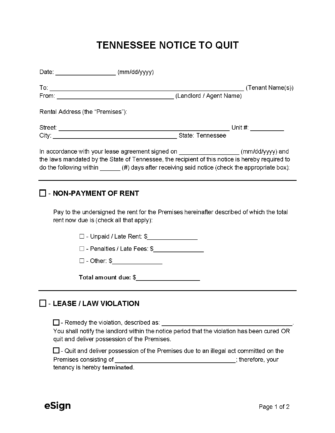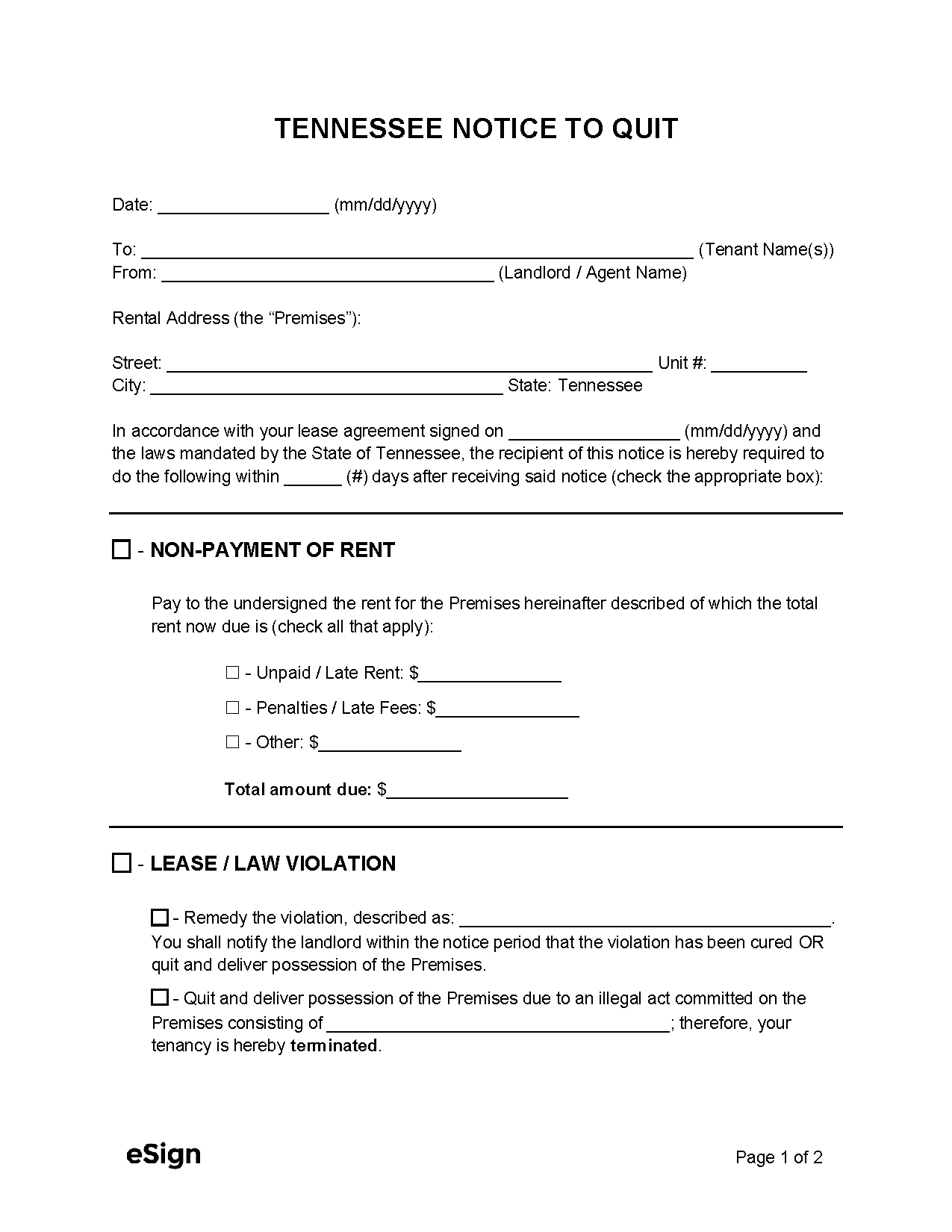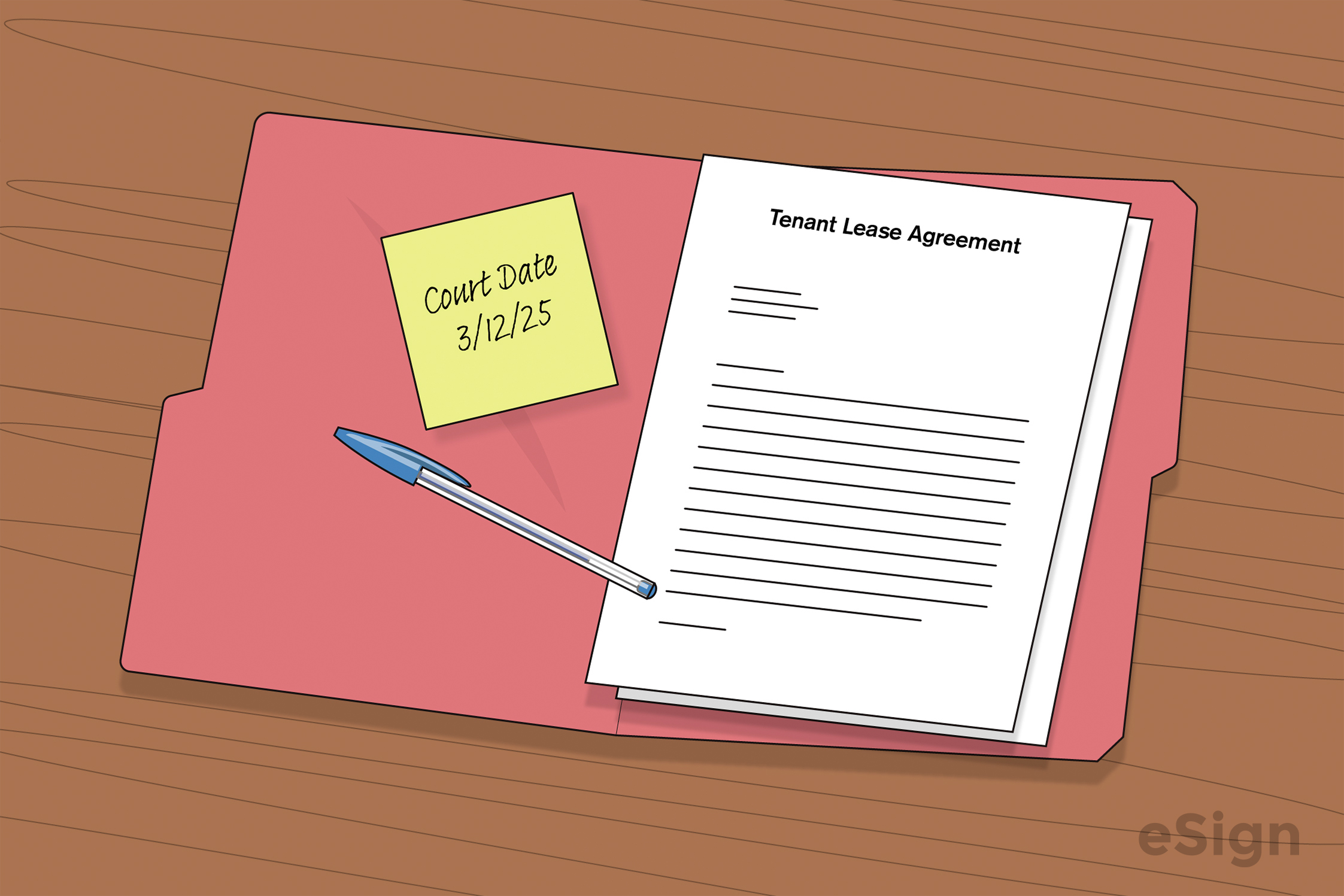Eviction Notices: By Type (10)
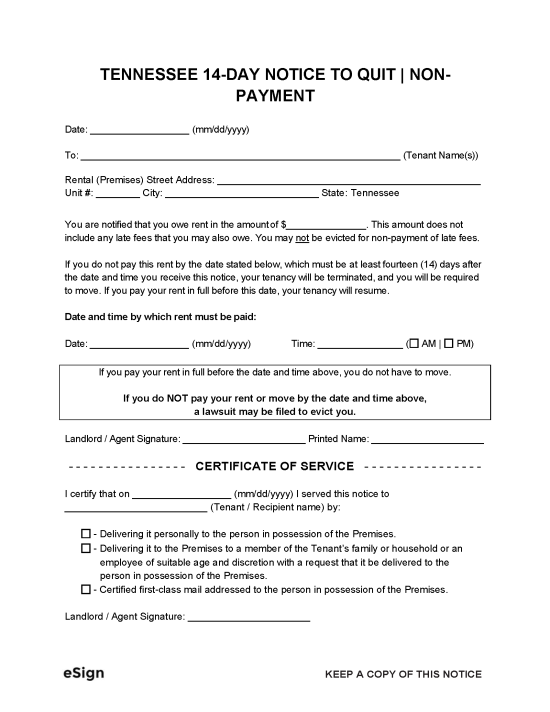 14-Day Notice to Quit | Non-Payment – Informs a tenant that they must vacate if they do not pay overdue rent within 14 days. 14-Day Notice to Quit | Non-Payment – Informs a tenant that they must vacate if they do not pay overdue rent within 14 days.
Download: PDF, Word (.docx), OpenDocument |
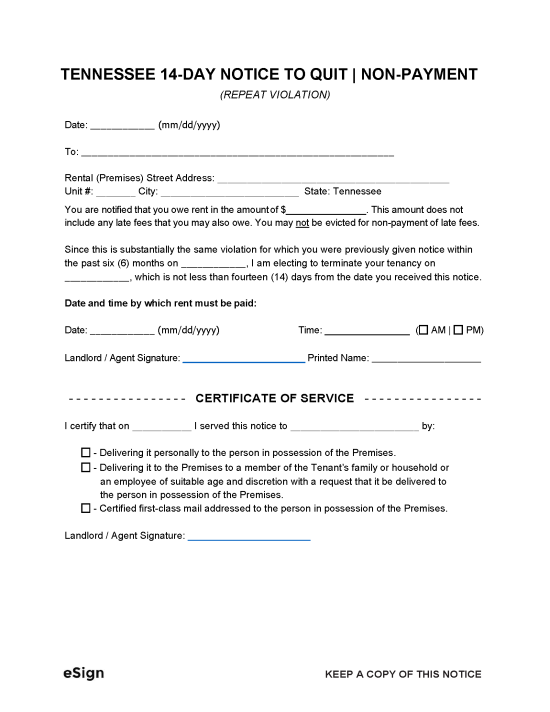 14-Day Notice to Quit | Repeated Non-Payment – A lease termination notice served on a tenant who has missed rental payments twice in six months. For non-URLTA counties only. 14-Day Notice to Quit | Repeated Non-Payment – A lease termination notice served on a tenant who has missed rental payments twice in six months. For non-URLTA counties only.
Download: PDF, Word (.docx), OpenDocument |
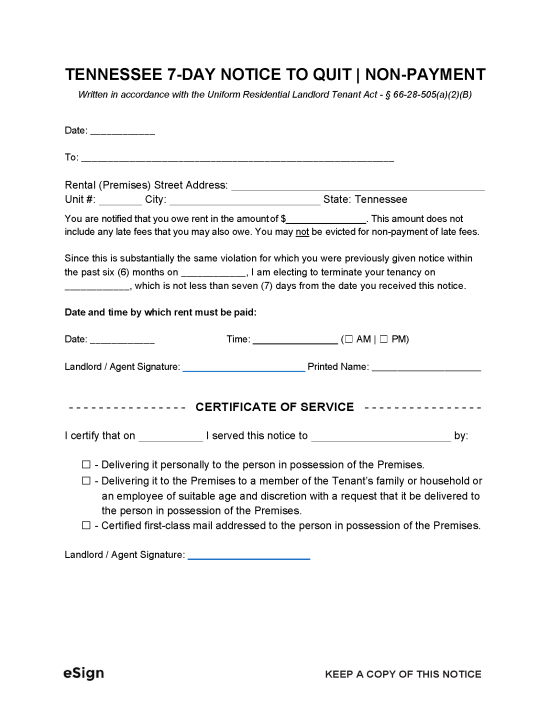 7-Day Notice to Quit | Repeated Non-Payment – A notice to quit for tenants who have repeatedly missed a rental payment. For URLTA counties only. 7-Day Notice to Quit | Repeated Non-Payment – A notice to quit for tenants who have repeatedly missed a rental payment. For URLTA counties only.
Download: PDF, Word (.docx), OpenDocument |
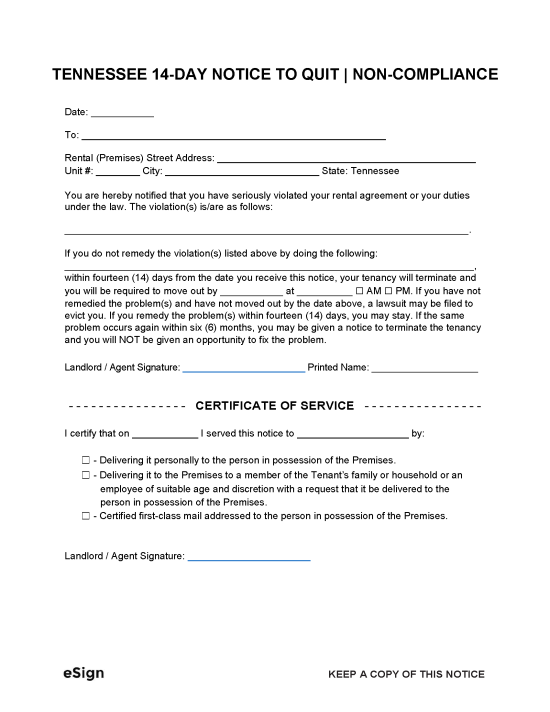 14-Day Notice to Quit | Non-Compliance – After receiving this notice, a tenant has 14 days to cure a lease violation or quit the premises. 14-Day Notice to Quit | Non-Compliance – After receiving this notice, a tenant has 14 days to cure a lease violation or quit the premises.
Download: PDF, Word (.docx), OpenDocument |
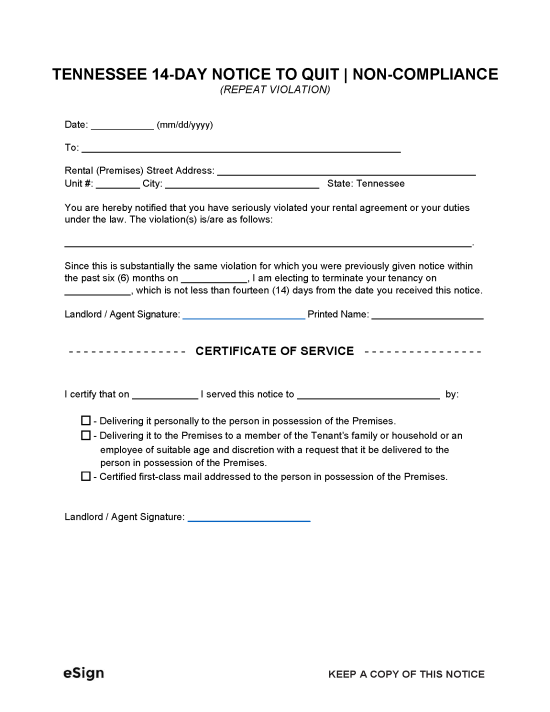 14-Day Notice to Quit | Repeated Non-Compliance – Allows a landlord to end a lease early if the tenant has repeatedly violated its terms. For non-URLTA counties only. 14-Day Notice to Quit | Repeated Non-Compliance – Allows a landlord to end a lease early if the tenant has repeatedly violated its terms. For non-URLTA counties only.
Download: PDF, Word (.docx), OpenDocument |
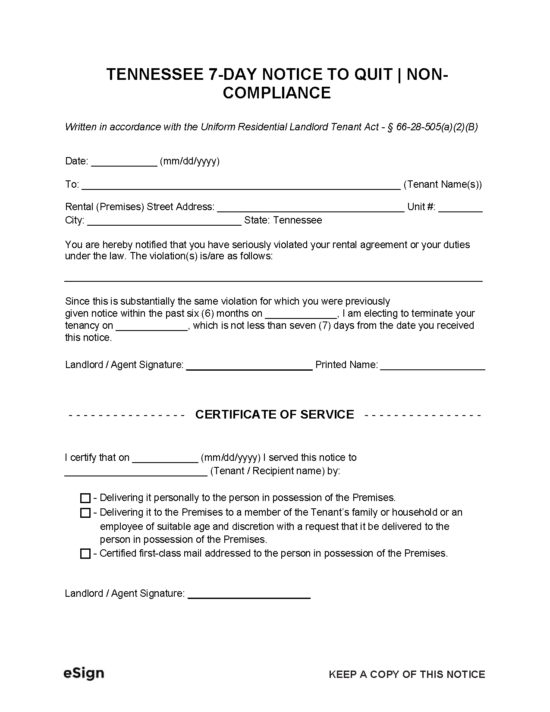 7-Day Notice to Quit | Repeated Non-Compliance – Used to remove a tenant from a residence due to repeated violations of their lease terms. For URLTA counties only. 7-Day Notice to Quit | Repeated Non-Compliance – Used to remove a tenant from a residence due to repeated violations of their lease terms. For URLTA counties only.
Download: PDF, Word (.docx), OpenDocument |
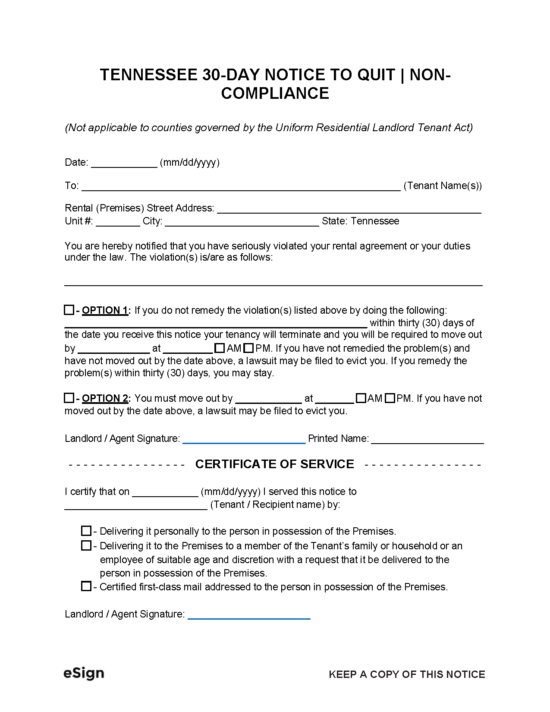 30-Day Notice to Quit | Non-Compliance – Requires a tenant to correct a lease violation or move out within 30 days. For non-URLTA counties only. 30-Day Notice to Quit | Non-Compliance – Requires a tenant to correct a lease violation or move out within 30 days. For non-URLTA counties only.
Download: PDF, Word (.docx), OpenDocument |
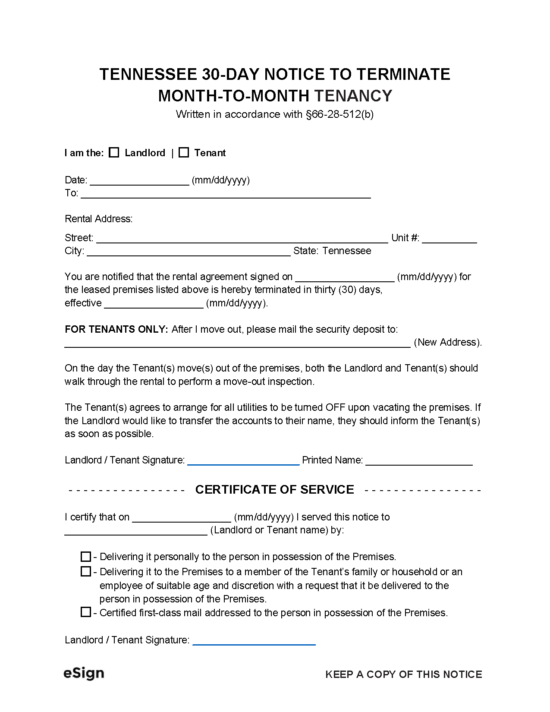 30-Day Notice to Terminate | Month-to-Month Lease – Used to terminate a month-to-month lease. For use in any county. 30-Day Notice to Terminate | Month-to-Month Lease – Used to terminate a month-to-month lease. For use in any county.
Download: PDF, Word (.docx), OpenDocument |
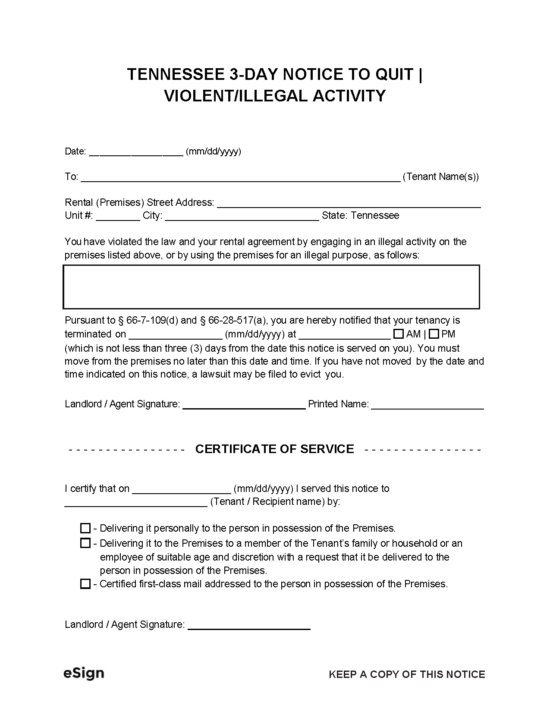 3-Day Notice to Quit | Violent or Illegal Activity – This notice requires tenants who have committed illegal acts to quit the premises within three days. For use in any county. 3-Day Notice to Quit | Violent or Illegal Activity – This notice requires tenants who have committed illegal acts to quit the premises within three days. For use in any county.
Download: PDF, Word (.docx), OpenDocument |
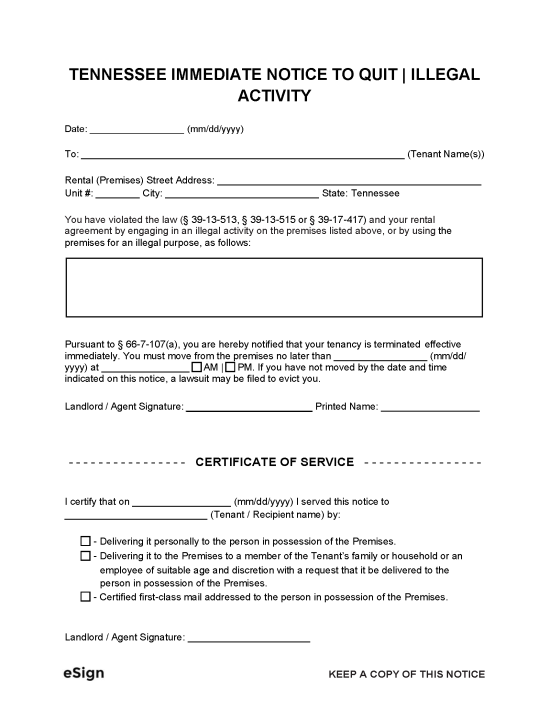 Immediate Notice to Quit | Illegal Activity – Notifies a tenant that they may no longer occupy the dwelling due to involvement with illegal activity. For non-URLTA counties only. Immediate Notice to Quit | Illegal Activity – Notifies a tenant that they may no longer occupy the dwelling due to involvement with illegal activity. For non-URLTA counties only.
Download: PDF, Word (.docx), OpenDocument |
URLTA
The below counties are governed by the Uniform Residential Landlord Tenant Act (URLTA).
- Shelby County
- Davidson County
- Knox County
- Hamilton County
- Rutherford County
- Williamson County
- Montgomery County
- Sumner County
- Wilson County
- Sullivan County
- Blount County
- Washington County
- Bradley County
- Maury County
- Sevier County
- Madison County
- Anderson County
Notice Requirements
How to Evict a Tenant in Tennessee
Step 1 – Draft a Notice to Quit
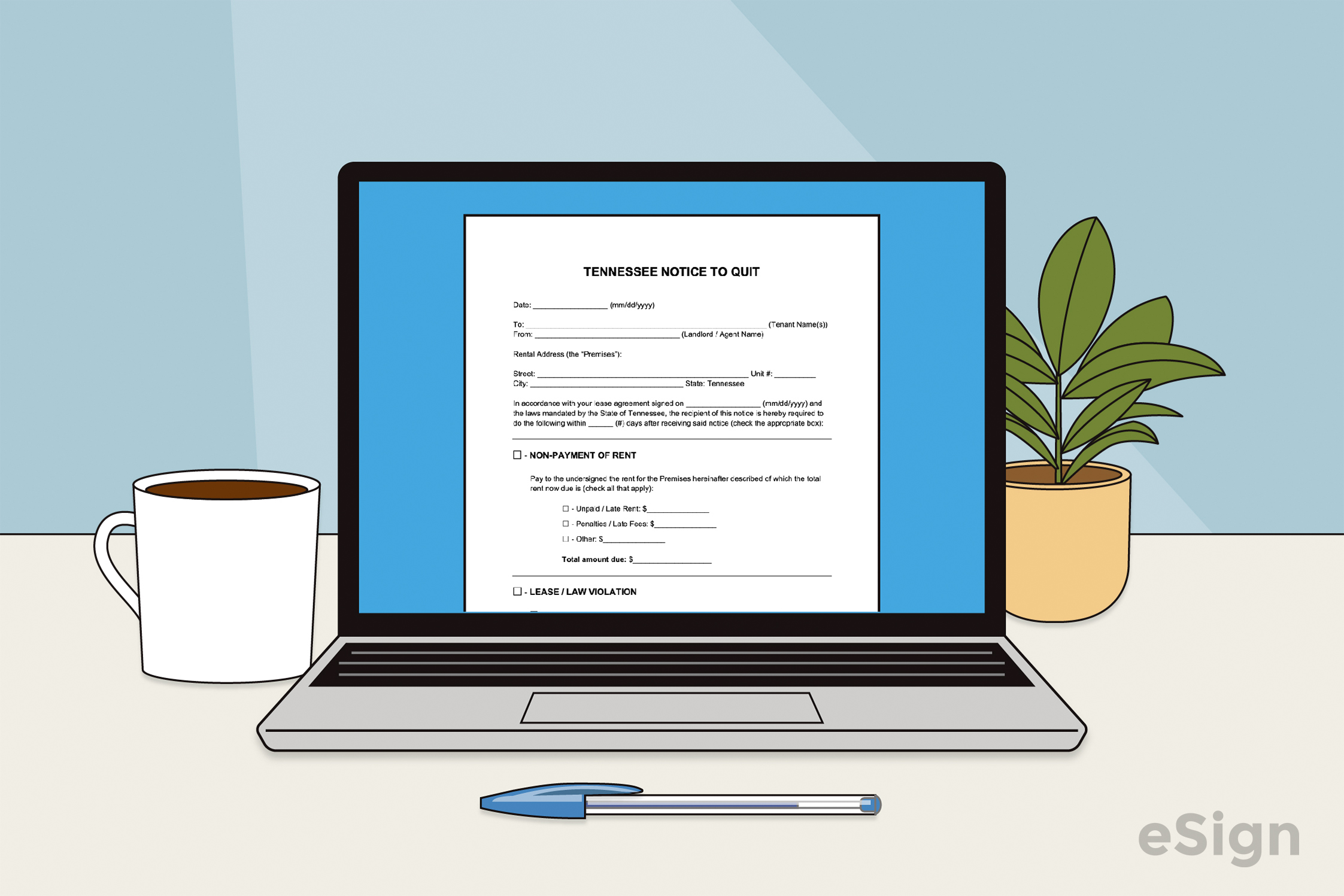
- 14-Day Notice to Quit for Non-Payment
- 7-Day Notice to Quit for Non-Payment
- 14-Day Notice to Quit for Non-Compliance
- 7-Day Notice to Quit for Non-Compliance
- 30-Day Notice to Quit for Non-Compliance
- 30-Day Notice to Terminate Month-to-Month Lease
- 3-Day Notice to Quit for Violent or Illegal Activity
- Immediate Notice to Quit for Illegal Activity
Step 2 – File and Serve Detainer Summons
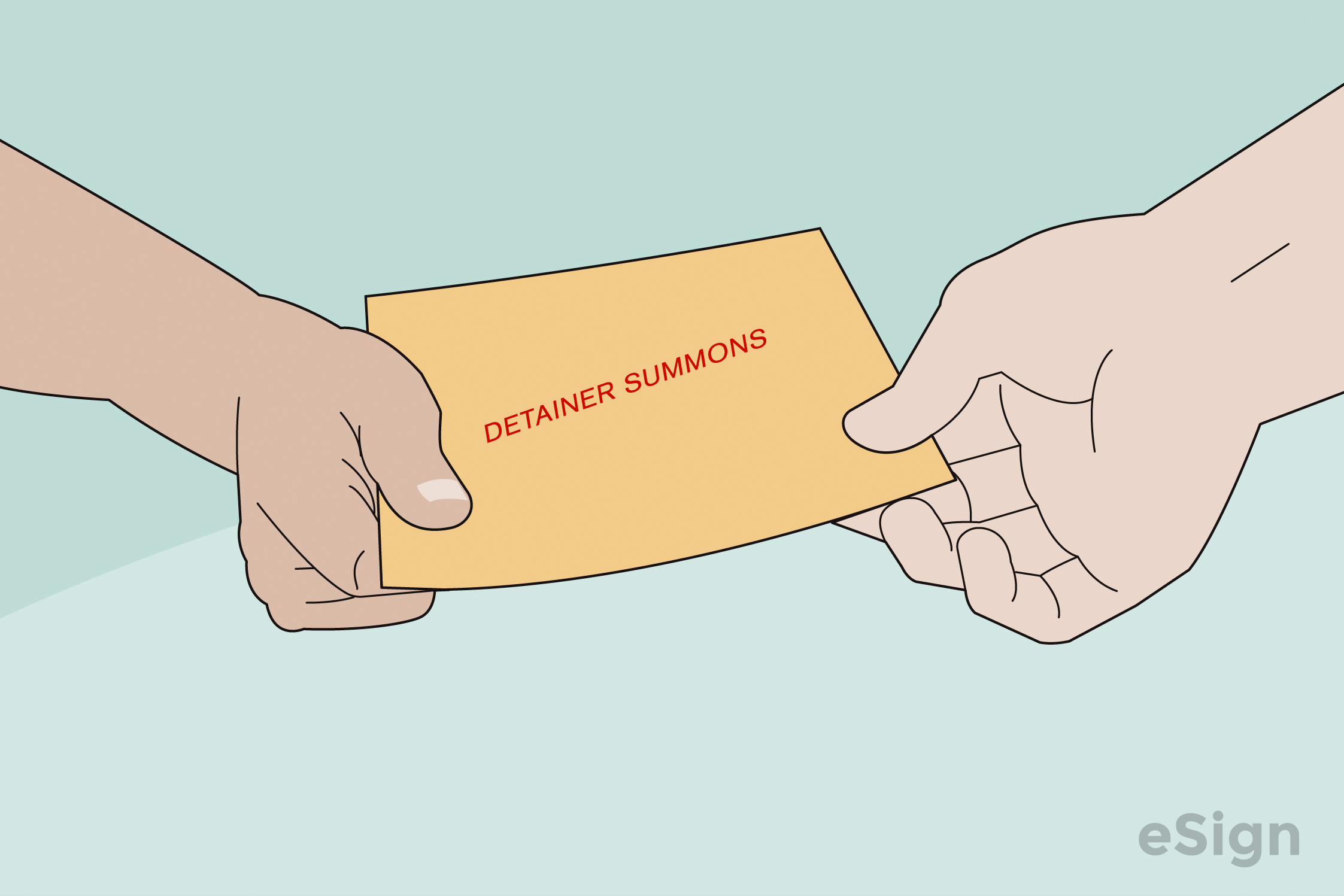
The landlord must wait for the notice period to expire and then file a Detainer Summons (also known as a detainer warrant) with the General Sessions Court. The Summons notifies the tenant that a court date has been set and they must attend.
It can be served using the following methods:
- The sheriff, officer, or process server delivers the Summons directly to the tenant. If in-person service has failed after three attempts, they will post the Summons on the premises and mail a copy to the tenant’s residence or last known address.
- The landlord files the original Summons and a copy certified by the court clerk with the sheriff (or constable), who will mail it to the tenant.
Step 3 – Appear in Court
At the hearing, the landlord should bring copies of the lease and the notice to quit. A non-attendance by the tenant will result in a default judgment against them.
Step 4 – Judgment

During the hearing, the judge will hear both parties and come to a verdict. If the landlord wins the case, the tenant will have 10 days to appeal or vacate the premises. If the tenant wins, they will be able to stay and could seek damages from the landlord.
Step 5 – Sheriff Removal

If 10 days pass and the tenant doesn’t leave, the landlord can obtain a Writ of Restitution (also called a writ of possession) authorizing law enforcement to evict the tenant.
After law enforcement oversees the removal of the tenant, the landlord must allow 48 hours to pass before extracting the tenant’s belongings from the property.
Court Forms + Resources
Forms
- Detainer Summons
- Signing: Judge, Clerk/Deputy Clerk, Process Server
- Writ of Restitution/Possession
- Signing: Clerk/Deputy Clerk, Process Server
Resources
